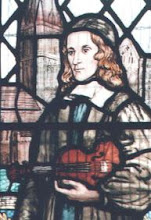
On Reading Henry James: Collected Travel Writings: The Continent: A Little Tour in Frace / Italian Hours / Other Travels. Ed. Richard Howard. (Library of America)
Henry James' travel writings on France and Italy are a case study in fine arts perception, understanding and interpretation. He treats each new locale as a new horizon to be engaged, absorbed, and internalized through a hermeneutic of analogical interiority. Roaming within the halls and chambers of French and Italian architecture opens, through the text, new conduits for an understanding of the vast interiority that exists within the self-examining-self. James is a master at relating the space of each location with the thoughts, instincts, relational perceptions and education of the observer. Reading these texts is like engaging each site oneself and discussing with a learned and trusted friend about what one is experiencing, not just what one is seeing. The art work of Joseph Pennell is an amazing addition to these works and masterpieces on their own. Do yourself a favor and buy this book. It will be a cherished addition to your collection and a book you will pick-up time and again to walk with the "Master" through France and Italy as you discuss, reflect and remember literary events that where home to these marvels. If you happen to be planning a trip to either France or Italy, take this along to add a level of historical and cultural depth to your experience. Some of what you will read has disappeared into history, but what remains is a beautiful historical and cultural continuity with Henry James as your guide.





